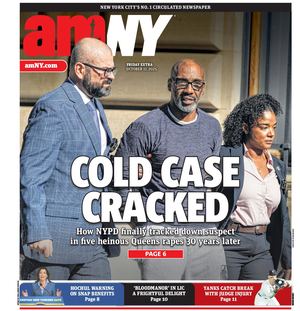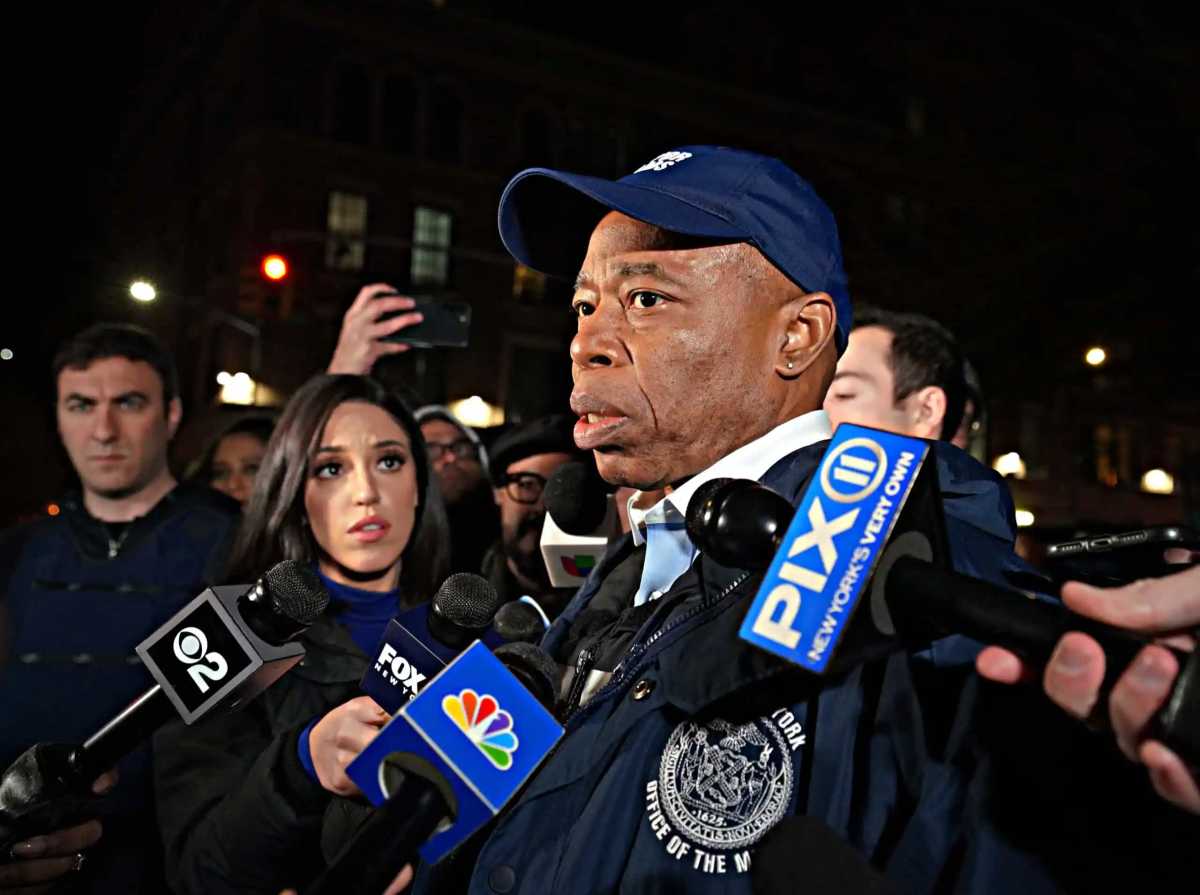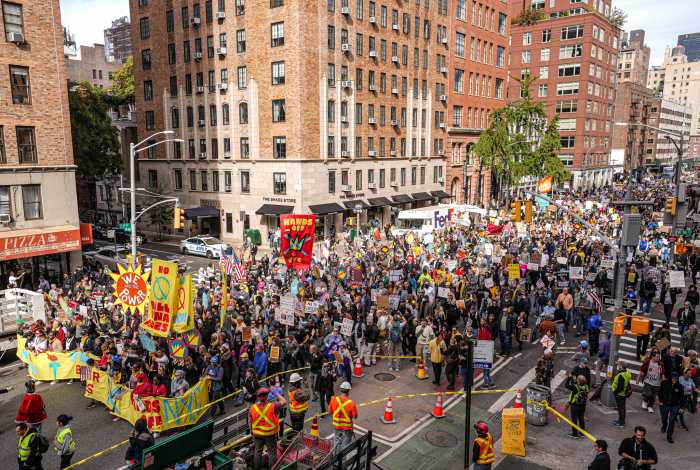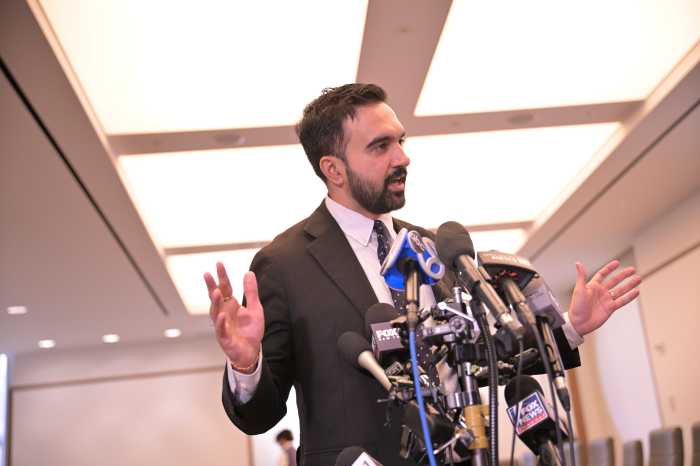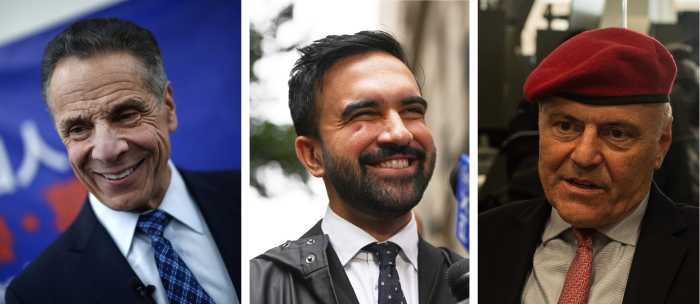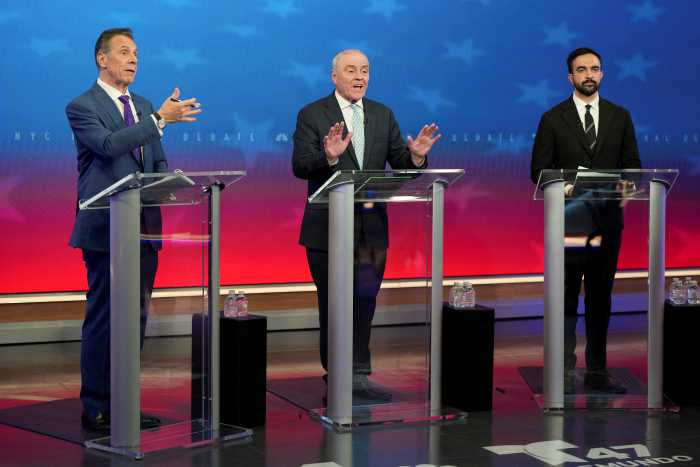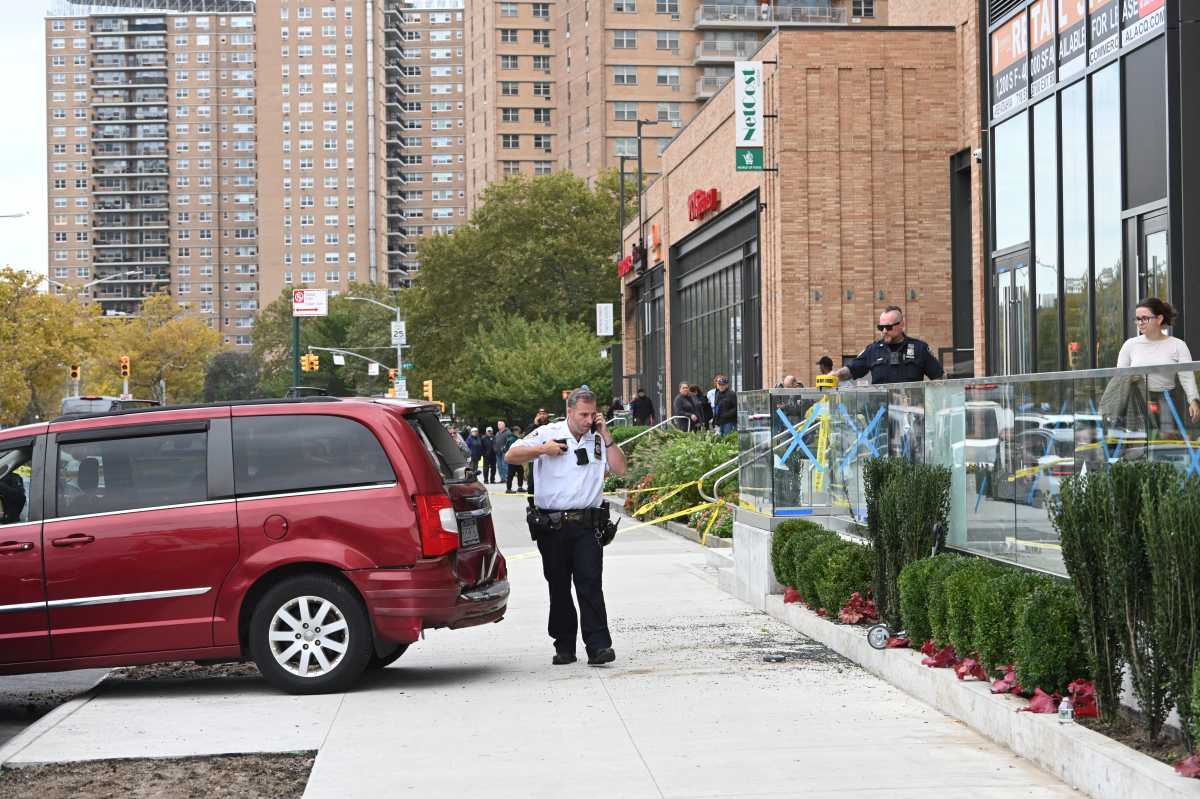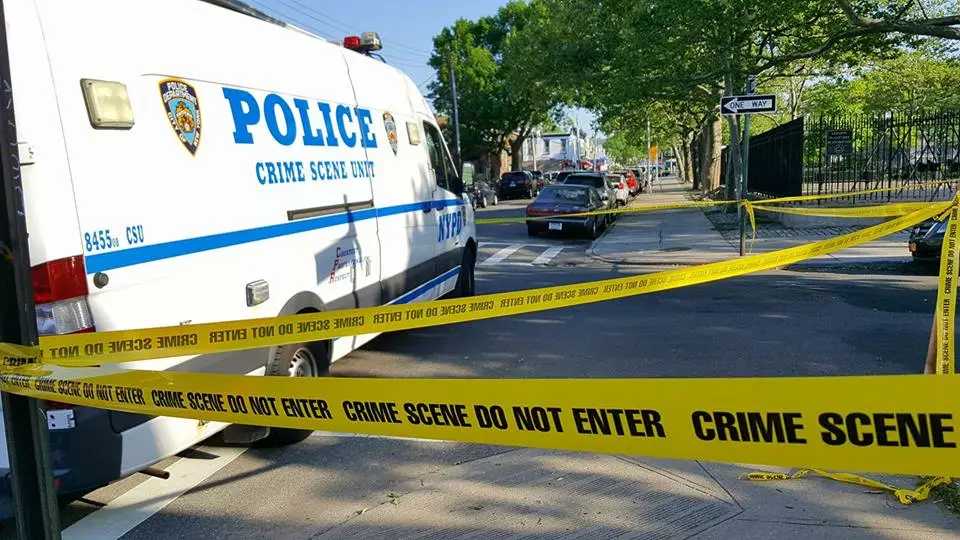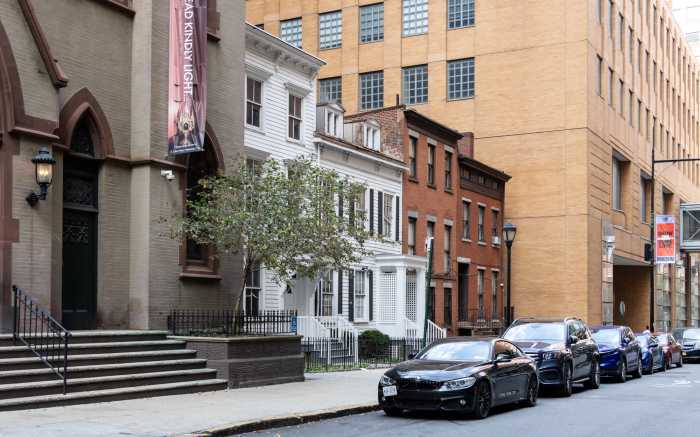On the heels of a grisly shooting aboard a Brooklyn subway car Thursday, Mayor Eric Adams on Friday called on Albany lawmakers to give the city more power to involuntarily commit people struggling with “severe mental illness.”
The mayor, during a Thursday morning WABC77 radio interview, said that after reviewing video footage of the incident, where a man was shot in the head on an A train Thursday afternoon, he believed the victim was mentally ill.
Cops said the man who was shot instigated the incident after getting into a dispute with another passenger near the Hoyt-Schermerhorn Streets station. The victim, who Adams said had mental health issues, possessed a gun that he lost control of, which was ultimately used on him.
The mayor was asked about the brutal incident during an interview with conservative radio host Sid Rosenberg on March 15.
“When you have someone that, what I saw in that video, is dealing with severe mental health illness, start that type of encounter on our subway system, this just really reinforces what I have been attempting to do,” Adams said. “You got to give us more power, Albany, to deal with involuntary removals for those who are dealing with severe mental health illness.”
The mayor has pursued his own effort on the city-level to scale-up involuntary commitments of people believed to be unable to care for their “basic needs” due to mental illness. A year after implementing that policy, Adams said it led to the involuntary hospitalization of 137 people a week between last May and November, though it was not clear how many of those individuals were quickly discharged from hospitals, according to a published report.
But Adams says there is only so much the city can do without state level policy changes around the forced hospitalizations.
Among the items he wants enacted is to codify into state law the standard that first responders can involuntarily commit people who are unable to care for their basic needs, including eating, drinking water, having a place to live and seeking medical care.
Furthermore, when it comes to tracking patients after they leave the hospital, Adams wants a suite of changes to Kendra’s Law, or the “assisted outpatient treatment” (AOT) law, which allows courts to order mandatory outpatient mental health treatment for those with a history of hospitalizations or violence. Changes the mayor is seeking to the law include requiring all patients to be screened for AOT prior to being discharged, making it easier for individuals to be put back in AOT after exiting it and making one-year the default length of having an AOT order in place, among others.
While there is pending Albany legislation that includes all of those measures, it is unclear whether it will pass this legislative session, which wraps up in June.
Adams in a subsequent interview on PIX11 said even though crime statistics are trending in the right direction, he is focused on this issue because it is crucial that New Yorkers feel safe while moving around the city — a line he often repeats.
“Public safety is not only the stats, public safety is how people feel,” he said. “Yes, I can say that crime is down in our subway system and that crime is down in the city and that we’re the safest big city in America, but that means nothing if people don’t feel that.”
The latest shooting and the mayor’s comments follow a recent string of high-profile violent incidents on the subways, which have prompted public officials to scramble for ways to quell a renewed perception of rampant crime on the transit system.
Adams has over the last month directed scores of additional cops to patrol the platforms and trains, which the NYPD says has led to a significant drop in subway crime.
Gov. Kathy Hochul took her own action on the issue last week by deploying 1,000 members of law enforcement — made up of National Guard troops, state and MTA police officers — into the subways to assist the NYPD with conducting random bag checks. The move has been criticized by both civil liberties groups and NYPD brass as heavy-handed and ineffective respectively.
Read more: NYC Appeals Court Ruling on Noncitizen Voting Rights
